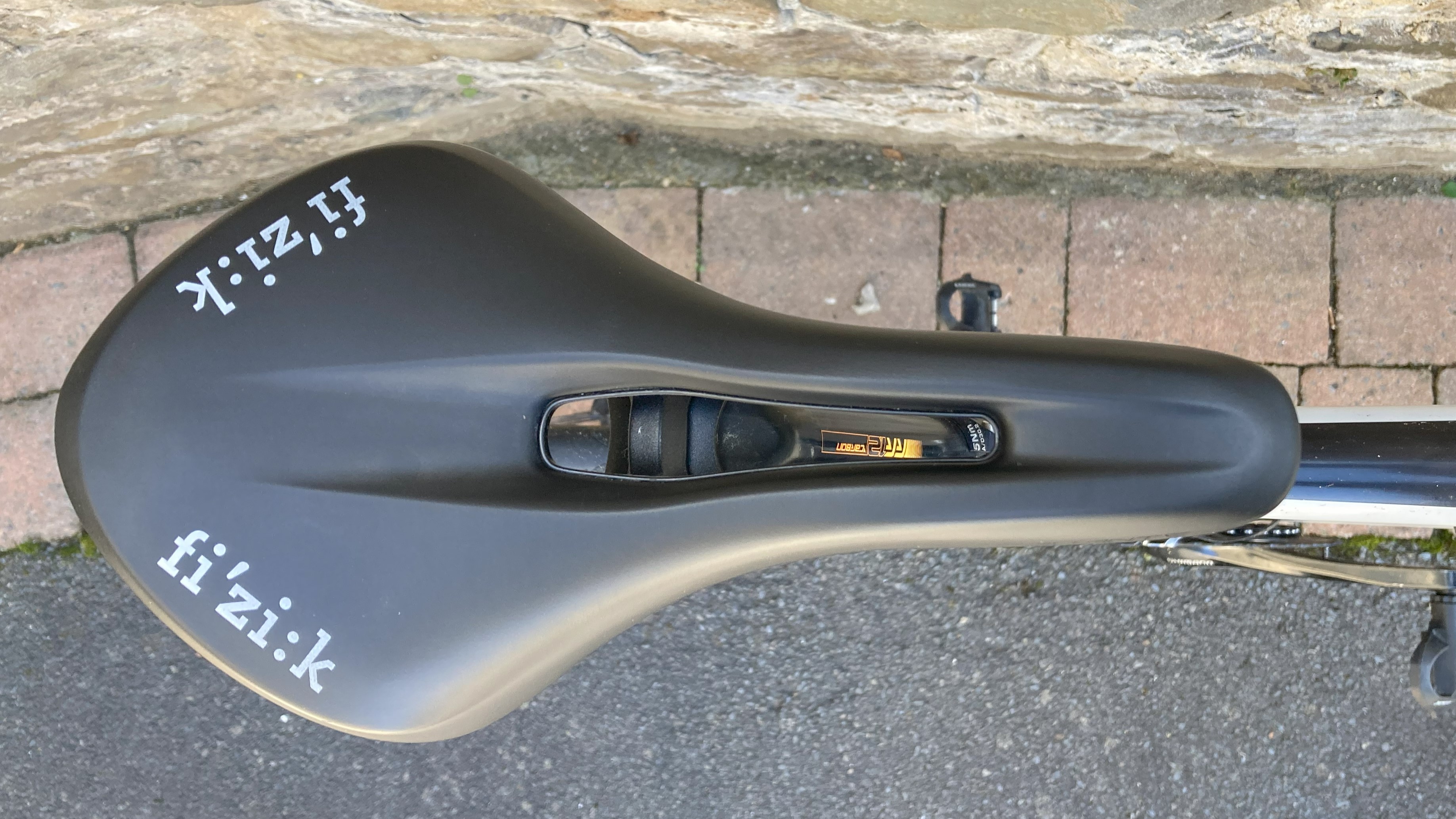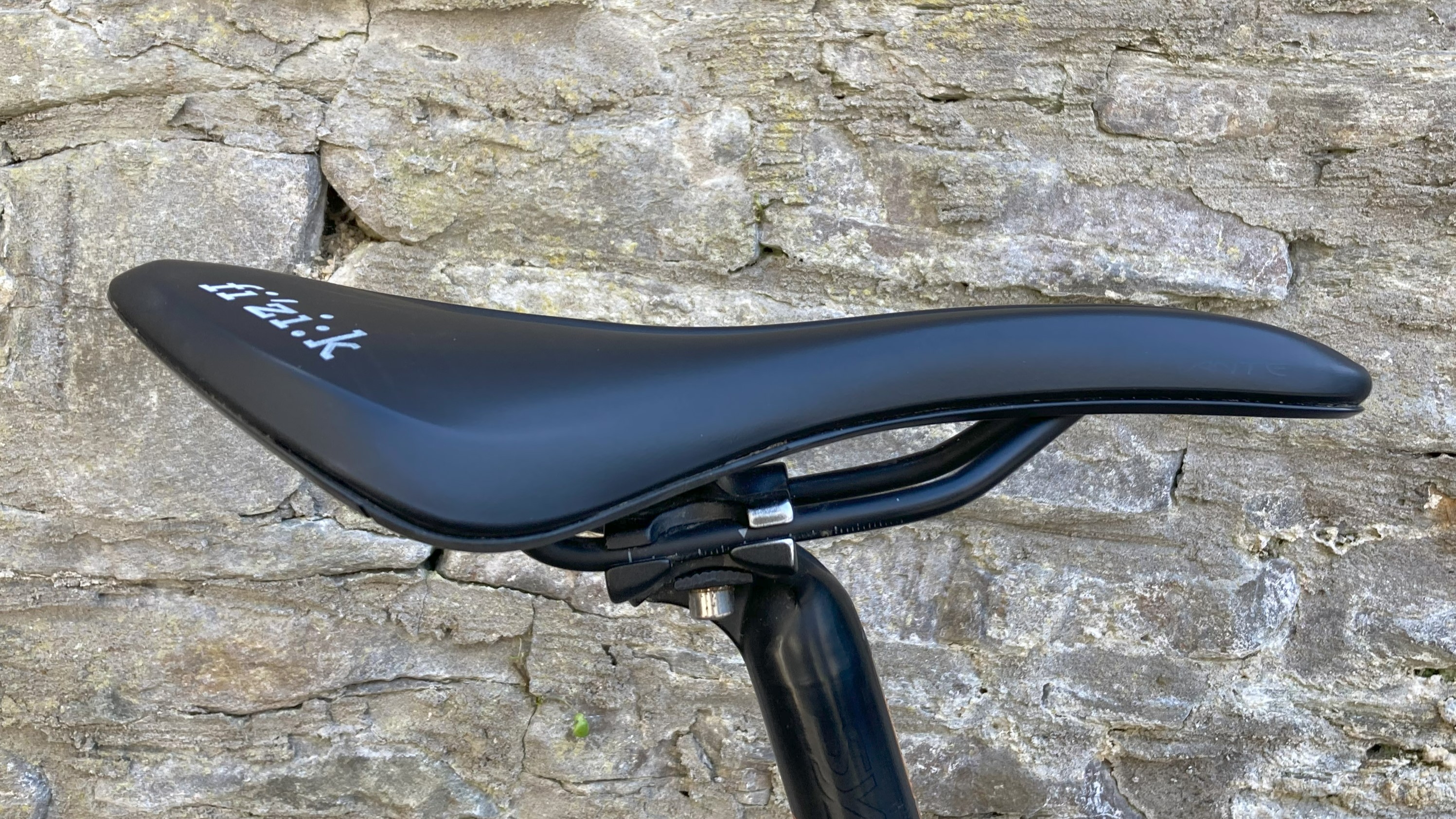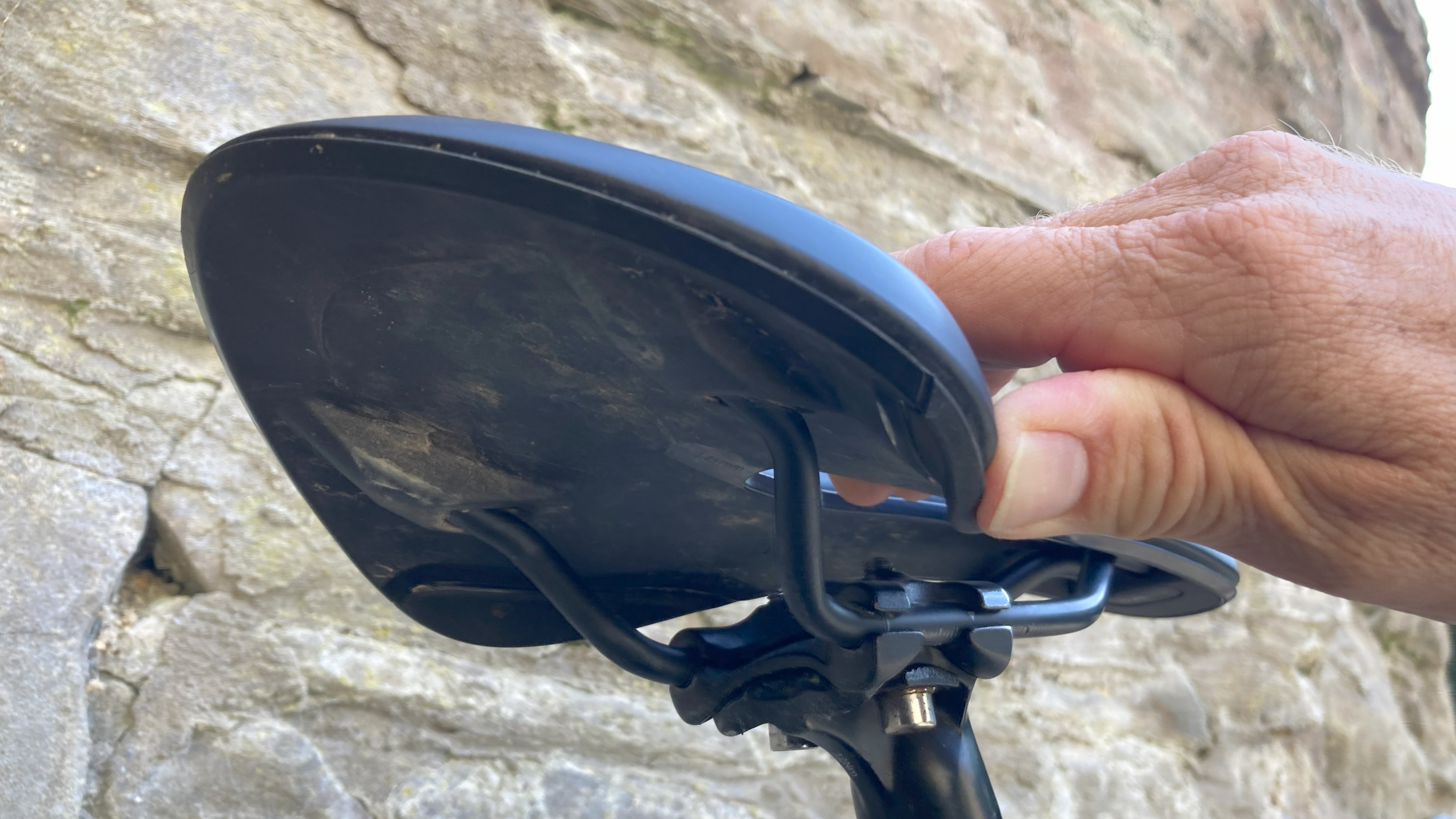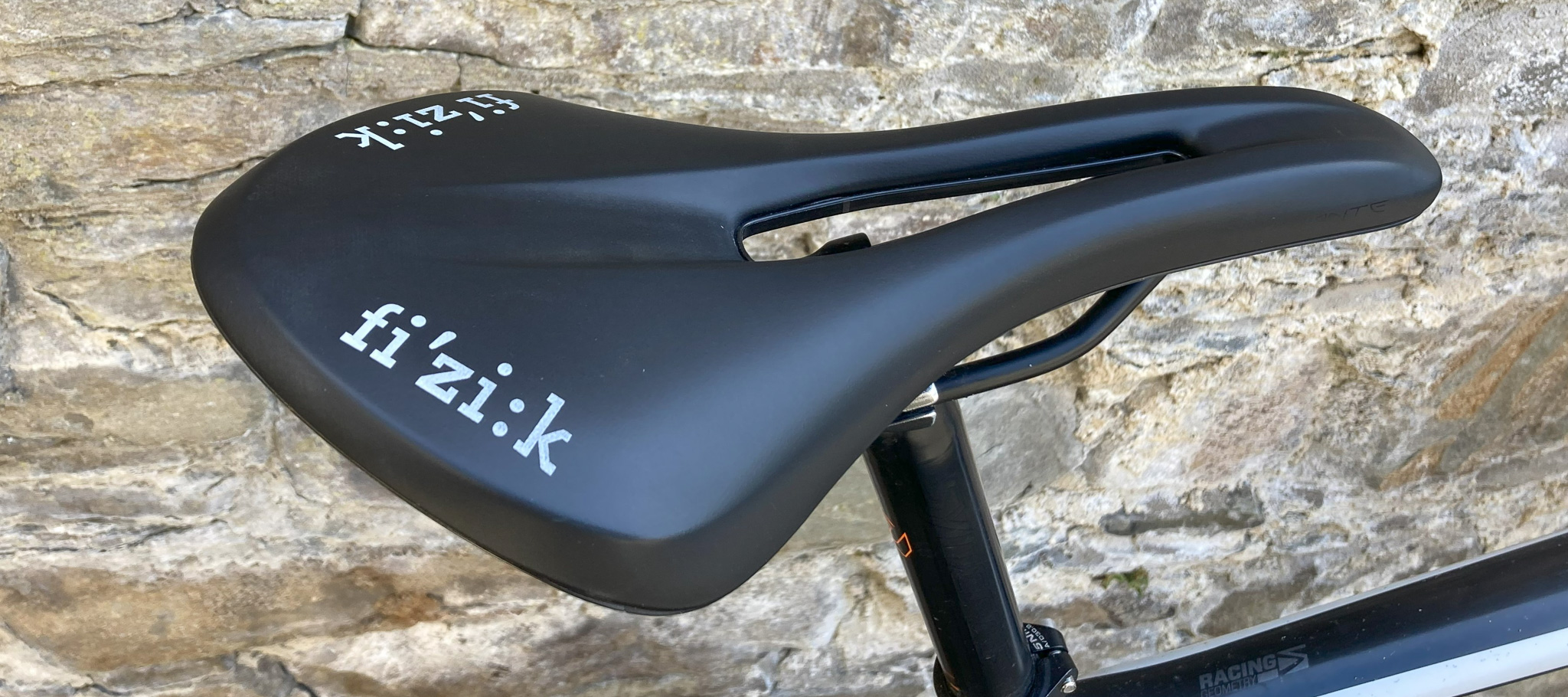Bike Perfect Verdict
A quality saddle with an interesting shell design to aid pedalling comfort, but comfort levels dropped significantly when off-road and when riding in the drops.
Pros
- +
Comfortable pedaling thanks to a flexible shell design
- +
Wave profile gives great support in an upright riding position
- +
Durable upper
Cons
- -
Not the most comfortable when off-road
- -
Won’t suit an aggressive riding position
- -
Essential you get the saddle tilt set up correctly
Why trust BikePerfect
Fizik has a vast range of saddle offerings including some of the best mountain bike saddles for comfort. The Tempo Aliante has been in the Fizik saddle lineup for over two decades and has recently seen a revamp with a slightly updated shape and materials.
Promoted as an all-day perch that prioritizes rider comfort, the Aliante R5 is targeted at endurance riders and sits within Fizik’s road saddle range. However, the Aliante also appears on Fizik’s website when searching for the best gravel saddles, so we hit the dirt and tested the Aliante R5 on some of our favorite trails to see if the all-day comfort claim stands up.

Design and specification
The Aliante R5 is a great-looking saddle, with a finely textured upper that seamlessly blends into the carbon-reinforced nylon shell. The shell has been co-moulded with flexible material at the tips of the wings, where your inner thighs naturally sit against the saddle. The idea is that the flexible material allows the saddle to move and conform to your legs as you pedal, which Fizik describe as ‘Wingflex’. The shell sits on round 7mm S-Alloy rails which have been painted black and printed with usual fore-aft measurements.
Core to the Aliante saddle range is the distinct wave profile when viewed from the side, sometimes referred to as a scooped shape. The distinctive shape is designed to maximise comfort, support and pressure relief when combined with the large ergonomic cut-out that extends right to the tip of the nose. Dual-density foam has been used to provide firmer support under the Ischial (sit) bones with softer foam used on the nose for optimal comfort in every riding position.
When viewed from above the rear of the Aliante R5 tapers to a rounded point, and two large Fizik logos adorn the sit area.

Performance
I’ve been testing the Aliante on my mile-munching gravel/all-road test bike, which I tend to use for long-distance rides exploring the many bridleways and rural back roads in my local area. The wave profile dictates that the Aliante R5 is the kind of saddle that you sit ‘in’ rather than ‘on’ and it took me a few attempts to get the tilt dialed in to be comfortable.
My initial thoughts were very positive. I felt well supported by the wave profile, particularly when the going was easy and the trails not too lumpy. However, when riding in a more attacking position in the drops, with my hips rotated forward, I couldn’t get comfortable and found myself constantly adjusting position. My suspicion is this is related to the central cut-out, which is very large and goes very nearly to the tip of the saddle. The pressure relief benefits of cut-outs are well documented, but on the Aliante, the edges of the cut-out seem quite harsh and could be much more rounded. I think it’s these edges I could feel when rotated forward in the saddle.
On more challenging off-road terrain, the Aliante R5 also struggled. The padding isn’t particularly thick, and the wave profile results in a locked-in feel that doesn’t lend itself to quick forward or backward weight adjustments. As a final test, I mounted the Aliante R5 on my XC mountain bike, and promptly took it off after one ride! Whether it’s the minimal padding or central cut-out shape, I really couldn’t get comfortable when things got lumpy and challenging.
To finish on a positive note, the Aliante R5 is still looking fresh and scuff-free after 3 months of gravel riding, and the textured upper material which I thought might cling to dirt, cleans up well.

Verdict
Saddle fit and comfort are subjective to each rider, but from my time spent aboard the Aliante R5, I would say it suits a more upright riding position and the smoother end of the gravel spectrum. If this sounds like you and your type of riding, then the Aliante R5 could be a good option. If your riding position is a bit more aggressive and you like to push on the pedals and explore how far off-road the best gravel bikes can take you, then the Aliante R5 probably isn’t for you.
| Attributes | Notes | Rating |
| Fit and comfort | Comfy on the road, but not great when venturing off-road | ★★ |
| Durability | No scuff protection built in, but upper material has lasted well | ★★★★ |
| Value | Comparable weight and cost against other Alloy railed saddles on the market | ★★★★ |
Tech specs: Fizik Tempo Aliante R5 saddle
- Price: $109.99 / £109.99 / €109.99
- Weight: 230g (145mm version)
- Widths: 145mm, 155mm
- Length: 277mm
- Rails: 7 x 7mm

James has over 35 years’ riding experience, getting involved with the burgeoning mountain bike scene in the late eighties and hasn’t stopped riding since. He raced cross-country across the South West of the UK for many years and has even dabbled with a bit of road racing. Whether going up, down, steep or flowing, James loves it all. Living in North Devon, the hills aren’t exactly mountainous, but they are plentiful, and James likes nothing better than exploring the wilderness of Exmoor and Dartmoor, and the occasional guided trip to the Alps to get the real mountain experience.

